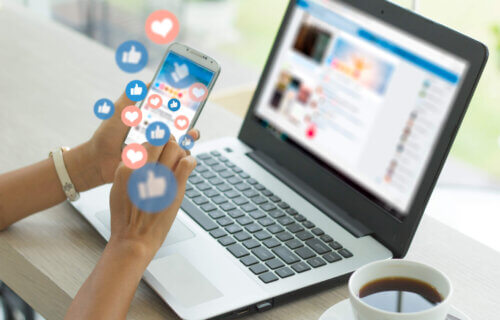BATH, United Kingdom — Don’t fret if you missed a close friend’s last few Instagram posts, researchers from the University of Bath say that you can still expect a “like” on your next post. Scientists report that friendships and relationships outweigh the emotional buzz of receiving a like on Instagram. In other words, when an acquaintance likes one of our posts, it usually leaves us more disposed to return that like in the future. However, this study also finds that relationship status is the overriding factor when it comes to that elusive tap of approval.
All in all, study authors say that close friends can expect a like from one another to an Instagram post regardless of reactions (or lack thereof) to a previous post, but for acquaintances, such behavior is reciprocal.
“People who are good friends give likes to each other as a way of keeping the relationship going – it’s something they’ll do whether the other person has liked their last post or ignored it,” says Dr. Kseniya Stsiampkouskaya from Bath’s School of Management, in a university release. “The action of giving a like can be seen as a small building block that supports the friendship and strengthens the bond between two people. This means that social media users engage in ‘social grooming’ – behavior aimed at maintaining social structures and relationships.”
What does a like do for your emotional state?
Getting a like on social media can drive excitement and enthusiasm, thus promoting an intention to like somebody’s posts in the future. However, study authors explain that good friends don’t need this approach. Strong relationships and friendships prompt likes all on their own.
“If you share something on social media, you can expect a like from your close friend even if you missed their previous post,” Dr. Stsiampkouskaya explains. “Liking between close friends is not about direct reciprocity, it is about the bigger picture – their friendship and connection.”
“For acquaintances, however, the situation is different. Acquaintances do not have the same social obligations towards each other as close friends, so they tend to mirror each other’s behaviors. Receiving a like from an acquaintance triggers our norm of reciprocity, so we are more likely to return the kindness and give a like back. However, if this acquaintance didn’t like our previous post, we will probably do the same and just ignore their future posts.”
This project explored direct reciprocation of social media likes using an online experiment that involved 201 people from numerous countries, including the United States, United Kingdom, New Zealand, Ireland, Australia, and Canada — with 71 percent of participants being women. Researchers separated the volunteers into four groups — receiving a like from a close friend, not receiving a like from a close friend, receiving a like from an acquaintance, and not receiving a like from an acquaintance.
Next, everyone filled out a questionnaire-based simulation of Instagram in which they were given a choice to either return or not return a like to a friend or acquaintance. While that was happening, researchers used statistical modeling techniques to analyze participants’ emotional reactions.
Study authors admit that while relational closeness clearly influences social media “liking behaviors,” it is far from the sole driver of such actions. Earlier studies point to numerous factors including demographics, personality traits, enjoyment, personal brand management, and information sharing.
Still, the research team believes this work is “an important stepping-stone” in understanding how user behaviors shift across different levels of relational closeness. These insights can help social media platforms better optimize user experiences by focusing on the supposed point of social media in the first place: to connect people and provide plenty of opportunities for relationship building and maintenance.
“Understanding how relational closeness affects user behavior can help brands and businesses create effective engagement strategies, fostering the culture of cooperation and co-creation on social media,” Dr. Stsiampkouskaya concludes.
“Last but not least, the knowledge of why and how people give likes on social media can ease the pressure of social comparison, increase users’ self-awareness, and help them engage with platforms in a more mindful way.”
The study is published in the Journal of Computer-Mediated Communication.

